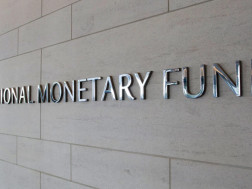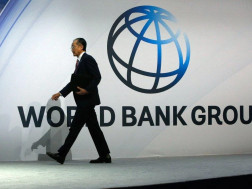Britain’s economy gathered pace in April as the government eased its coronavirus lockdown, official data showed Friday, with Finance Minister Rishi Sunak cautiously welcoming the 2.3-percent growth figure as the Delta variant spreads.
It was the fastest monthly output for the UK gross domestic product since July last year “as government restrictions affecting economic activity continued to ease,” the Office for National Statistics (ONS) said in a statement.
Britain’s economy had contracted 1.5 percent overall in the first quarter, although had already begun to bounce back strongly in March with GDP of 2.1 percent.
The UK’s overall output for April remains 3.7 percent below pre-pandemic levels seen in February last year.
“Overall, the economic recovery stepped up another gear in April and GDP is on track to return to its February level before the end of the year,” noted Thomas Pugh, UK economist at Capital Economics research group.
“If anything, the economy could regain its pre-crisis level even sooner.”
April’s growth was driven by the service sector, which jumped 3.4 percent as consumers once again started to visit nonessential physical stores, restaurants and bars and as more children returned to onsite lessons, the ONS said.
Output in the production sector however dropped 1.3 percent during the same month, recording the first fall since January. And construction contracted 2.0 percent following a strong March.
Since May, the government has further eased restrictions, with people now allowed to eat and drink inside restaurants and bars, having initially been able to sit only outside.
“Today’s figures are a promising sign that our economy is beginning to recover,” said Chancellor of the Exchequer Sunak.
His cautious response comes amid mounting concerns over whether the emergence of the Delta variant of the coronavirus threatens the UK government’s provisional June 21 deadline for further lifting virus restrictions.
The Delta variant, which first emerged in India, is now the dominant strain in the UK, according to Public Health England figures.
And the UK government on Friday said it is 60 percent more transmissible in households than the variant that forced the country to lock down in January.
Separate data Friday showed UK exports fell 0.6 percent in April after two months of growth, with drops in exports to non-EU countries offsetting increases to nations within the bloc, the ONS said.
While exports to the EU rose 2.3 percent month-on-month, they remained 9.0-percent below 2019’s average level, or ahead of Britain’s formal exit from the European Union at the start of this year, according to Samuel Tombs, chief UK economist at Pantheon Macroeconomics.
“That is a disappointing performance, given the boom in global trade flows. UK exporters have lost market share,” he added.
Goods imported to the UK meanwhile grew 3.9 percent in April.
The trade data was published as Britain hit back at French President Emmanuel Macron’s uncompromising stance on Brexit, in a simmering row over new trading arrangements for Northern Ireland.
Macron on Thursday warned London that it was “not serious” to review agreements signed last December, just weeks before the UK left the European single market and customs union.
But Foreign Secretary Dominic Raab insisted that Brussels should be more flexible in its approach to Northern Ireland, which shares the UK’s only land border with the EU.
Under the so-called Northern Ireland protocol, checks are required on some goods heading to the British province from mainland Britain — England, Scotland and Wales.























